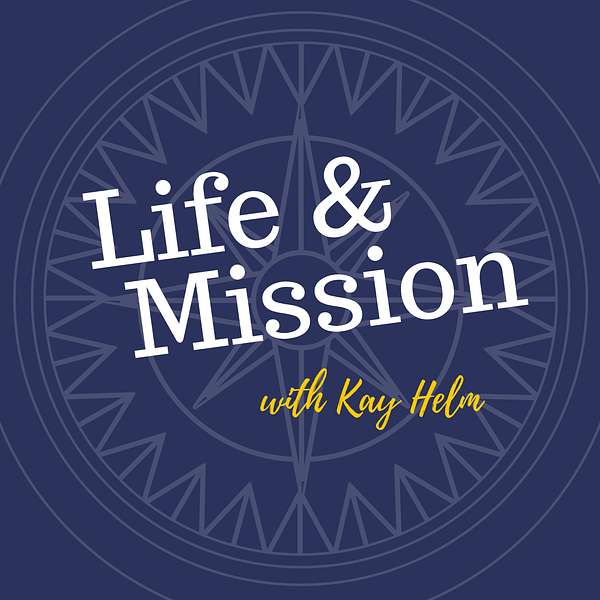
Life and Mission
Storytelling and writing are essential skills for missionaries, ministry and nonprofit leaders. In fact, if you struggle to tell stories, you'll struggle to raise the funds you need. Kay Helm is a writer & editor with experience in missions and the business world. She founded Mission Writers in 2022 to help missionaries write fundraising appeals and powerful stories to share with supporters. In this podcast, she offers tips you can use today to improve your missions & nonprofit writing.
Life and Mission
What Does it Mean to be Called?
While many other books will give you tactics and tools to discover your calling, or to focus your vision, I want to start with The Call, by Os Guinness, because it gives us a solid foundation.
What is Calling?
A quick trip to the dictionary offers these definitions:
- the act of a person or thing that calls.
- a call or summons
- a strong impulse or inclination
- a convocation (like a meeting)
The origin of our word for the vocal meaning of “calling” has its origins in the Old English “hildecalla” which means “battle cry.” Calling also shares roots with the Latin word for “glory” - ”gloria” - and this is associated with the vocational meaning of calling.
The idea of calling and vocation is important to us because it affects our personal identity, humanness, and significance.
The main idea for The Call is that there is no calling without a Caller. As Guinness says, “If there is no Caller, there are no callings—only work.”
Here is how the Guinness defines Calling:
“Calling is the truth that God calls us to himself so decisively that everything we are, everything we do, and everything we have is invested with a special devotion and dynamism lived out as a response to his summons and service.”
We are called by someone, to someone, and for someone. And that someone. The One who calls us is Christ. This is our primary calling. That which we see as a vocational or occupational calling - those things we do in response to the primary call, are the secondary callings.
Distortions of Calling
Guinness points out two distortions of calling, the “Catholic Distortion” which elevates the spiritual over the secular. Then there is the “Protestant distortion” which elevates secular over spiritual so that work becomes the thing we serve.
Then there is the term “vocational calling” which - remember our definitions - means “calling calling.” So what we mean by “vocational calling” is actually “occupation” or work, and before we know it we’ve separated that area of our lives from our primary calling.
Four Key Distinctions
The key to overcoming these distortions of calling, according to Guinness, is to balance giftedness with stewardship. How do we do that? He offers four areas where we must carefully watch the way in which we view calling:
- the distinction between individual or particular calling and general or corporate calling
- the distinction between a special calling and original or ordinary calling
- the distinction between something being central to our calling and something being peripheral
- the distinction between the clarity of calling and the mystery of calling
Invitation
Set aside some time over the next few days to sit alone and present yourself and your gifts, your talents and your tendencies to God.
There’s a song that says “Here’s my heart, Lord--speak what is true.” It makes a wonderful prayer.
Somewhere in that quiet place and in that surrender, may the God who created you speak truth about who you are and who He created you to be.
Let’s hear from you
What are some books you’ve read about calling and purpose? What stuck with you or he
Mission Writers is a library of resources to help missionaries and nonprofits raise funds through storytelling. I've been re-organizing the content in response to some of your comments and suggestions, and I'll have some great resources for you in January. Sign up for my emails so you'll know when it's ready!
Podcasts we love
Check out these other fine podcasts recommended by us, not an algorithm.

Fully Funded Podcast - Fundraising for Christian Missionaries
Mary Valloni & Mike Kim
BibleProject
BibleProject Podcast